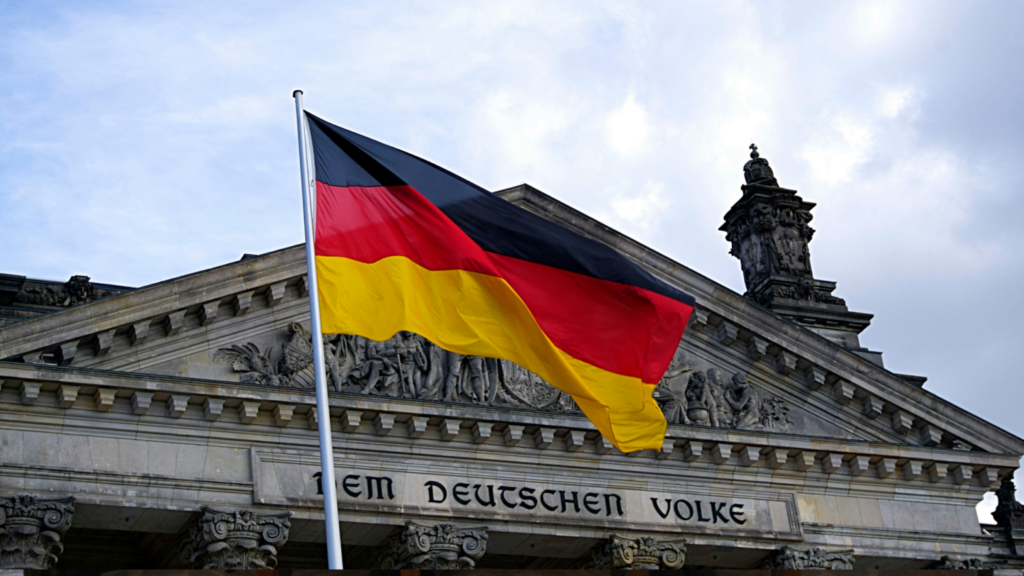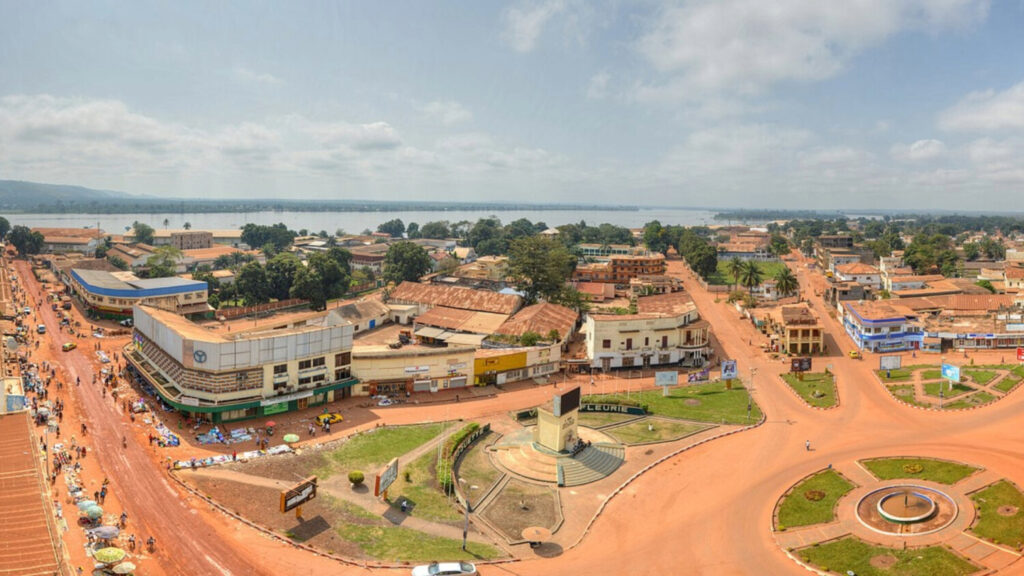Political Instability in Turkey
The Arrest of Istanbul’s Mayor and Its Implications
Turkey is currently experiencing significant political upheaval following the arrest of Istanbul’s Mayor, Ekrem İmamoğlu, a prominent opposition leader and potential contender against President Recep Tayyip Erdoğan. Mayor İmamoğlu’s detention, based on allegations of corruption and purported connections to terrorism, has sparked widespread protests (Sky News, 2025), intensifying concerns about the nation’s democratic stability. Therefore, this article explores the context of his arrest, the ensuing domestic and international responses, and the broader ramifications for Turkey’s political environment.
The Arrest of Mayor Ekrem İmamoğlu
On March 19th, 2025, Mayor Ekrem İmamoğlu was detained on charges of corruption and alleged affiliations with the Kurdistan Workers’ Party (PKK), an organisation classified as a terrorist organisation in Turkey. However, Mayor İmamoğlu, a prominent figure within the opposition Republican People’s Party (CHP), has categorically refuted these accusations, describing them as politically motivated efforts to undermine his position prior to the upcoming elections (The Guardian, 2025).
Nevertheless, the timing of Mayor İmamoğlu’s arrest has drawn significant attention, as it coincided with the official announcement of his candidacy for the 2028 presidential elections. Aware of the potential for his political influence to expand in the years leading up to the election, the ruling Justice and Development Party (AKP) acted decisively and pre-emptively. However, this strategic move, aimed at curbing Mayor İmamoğlu’s ability to consolidate support, underscores the extent of their apprehension regarding his candidacy (Politico, 2025).
Widespread Protests and Domestic Backlash
Following the announcement of Mayor İmamoğlu’s detention, thousands of protesters mobilised across Istanbul, Ankara, and other major Turkish cities, demanding his immediate release. Consequently, clashes between demonstrators and riot police resulted in numerous arrests and injuries, as authorities deployed tear gas and rubber bullets to disperse the crowds (BBC News, 2025). Nonetheless, organised by opposition parties and civil rights groups, these protests display the mounting dissatisfaction with President Erdoğan’s increasingly authoritarian governance and raise pressing concerns about the future of democracy in Turkey (Financial Times, 2025).
The CHP and other opposition groups contend that Mayor İmamoğlu’s arrest represents a continuation of a broader campaign to suppress political dissent. Conversely, over the past decade, President Erdoğan’s administration has detained numerous opposition leaders, journalists, and activists under expansive anti-terror legislation. Furthermore, this has continued during the current crisis, with several reporters and photojournalists being arrested in the aftermath of the protests (AP News, 2025). Thus significantly restricting freedom of speech and political expression within Turkey.
International Reactions and Diplomatic Fallout
Mayor İmamoğlu’s arrest has elicited strong criticism from Western allies. Concurrently, officials from France, Germany, and the European Union (EU) have issued statements expressing concern, with Ursula von der Leyen, President of the European Commission, describing his detention as ‘deeply concerning’, last Wednesday, emphasising that Turkey ‘must uphold democratic values, particularly the rights of elected officials’ (Council on Foreign Relations, 2025).
Meanwhile, Turkey’s NATO allies are closely observing the situation, recognising the country’s critical role in regional security dynamics. Thus, following Mayor İmamoğlu’s detention, a U.S. State Department spokesperson stated, “we would encourage Turkey to respect human rights”, but “we’re not going to comment on…the internal decision-making of another country “(Council on Foreign Relations, 2025).
Additionally, Mayor İmamoğlu’s detention occurs at a critical juncture while European nations consider potential Turkish involvement in establishing a force to secure a prospective cease-fire in Ukraine (Council on Foreign Relations, 2025). Furthermore, with the second-largest army in NATO after the United States, Turkey has expressed willingness to contribute troops to a peacekeeping mission in Ukraine (Bloomberg, 2025). However, the recent political turmoil may pose significant challenges to these initiatives.
President Erdoğan’s Strategy
Political analysts argue that President Erdoğan’s decision to take such decisive measures may be influenced by the prevailing global geopolitical climate. Especially with international attention largely centered on conflicts in Ukraine and the Middle East, President Erdoğan may perceive an opportunity to intensify his crackdown on opposition figures with limited resistance from the global community (The Times, 2025).
Moreover, President Erdoğan has a documented history of consolidating power through contentious measures, particularly during periods of political instability. In fact, his administration has previously leveraged the judiciary to silence opposition voices (World Socialist Web Site, 2025), a practice that has raised significant concerns regarding the independence and impartiality of Turkey’s judicial system.
Furthermore, over the course of his tenure, President Erdoğan has systematically consolidated control over the media, employing various tactics to suppress press freedom. These measures include mass arrests, physical intimidation, verbal threats, substantial fines, enforced removal or official blocking of digital news content, stringent regulation of social media platforms, politically orchestrated troll campaigns, and legal actions aimed at stifling public participation (Chatham House, 2023). Consequently, a significant portion of Turkish media outlets is currently owned by conglomerates aligned with President Erdoğan, enabling him to curtail dissent and discredit opposition voices (AP News, 2023).
The Broader Implications for Turkey
Therefore, Mayor İmamoğlu’s arrest represents a pivotal juncture in Turkey’s political trajectory. Should the opposition falter in mounting a robust resistance, President Erdoğan’s consolidation of power may intensify further. Conversely, sustained protests could lead to extended periods of unrest and heightened instability within the nation.
Moreover, the incident could have significant repercussions for Turkey’s economy. Political uncertainty is a well-documented deterrent to foreign investment, and Turkey is already grappling with substantial economic challenges (The Economic Times, 2025), as evidenced by its persistently high inflation rate over the last decade or so, illustrated in Figure 1. Therefore, this latest political crisis risks exacerbating the nation’s financial instability.
One thing remains clear: the future of Turkey’s democracy hangs precariously in the balance.
Bibliography
AP News. (2023). “How Turkey’s president Erdogan has maintained a tight grip on power in the country”. AP News. Published 2nd June, 2023. Available at: How Turkey’s president Erdogan has maintained a tight grip on power in the country | AP News
AP News. (2025). “Turkey detains journalists as protests grow over the jailing of key Erdogan rival”. AP News. Published 25th March, 2025. Available at: Turkey arrests journalists after President Erdogan’s top rival is jailed | AP News
BBC News. (2025). “Fierce protests in Turkey after Erdogan rival jailed”. BBC News. Published 22nd March, 2025. Available at: Fierce protests after Turkish President Erdogan’s main rival Imamoglu jailed – BBC News
Bloomberg. (2025). “NATO-Member Turkey Open to Deploying Peacekeepers in Ukraine”. Bloomberg. Published 27th February, 2025. Available at: Russia War: NATO-Member Turkey Open to Deploying Peacekeepers in Ukraine – Bloomberg
Chatham House. (2023). “Turkey: Erdogan’s grip on media threatens fair elections”. Chatham House. Published 11th May, 2023. Available at: Turkey: Erdogan’s grip on media threatens fair elections | Chatham House – International Affairs Think Tank
Council on Foreign Relations. (2025). “Mass Protests in Turkey and Other Headlines of the Day”. Council on Foreign Relations. Published 24th March, 2025. Available at: Mass Protests in Turkey and Other Headlines of the Day | Council on Foreign Relations
Financial Times. (2025). “Turkish protesters rise up against Erdoğan”. Financial Times. Published 24th March, 2025. Available at: Turkish protesters rise up against Erdoğan
Politico. (2025). “A turning point for Turkey’s democracy”. Politico. Published 21st March, 2025. Available at: A turning point for Turkey’s democracy – POLITICO
Sky News. (2025). “Turkish president Erdogan’s main rival Ekrem Imamoglu formally arrested and jailed pending trial”. Sky News. Published 23rd March, 2025. Available at: Turkish president Erdogan’s main rival Ekrem Imamoglu formally arrested and jailed pending trial | World News | Sky News
The Economic Times. (2025). “Türkiye on the brink as economic collapse looks imminent, will Recep Tayyip Erdoğan survive the political turmoil?”. The Economic Times. Published 24th March, 2025. Available at: Türkiye crisis: Türkiye on the brink as economic collapse looks imminent, will Recep Tayyip Erdoğan survive the political turmoil? – The Economic Times
The Guardian. (2025). “Huge protests as Istanbul mayor jailed on day of likely presidential nomination”. The Guardian. Published 24th March, 2025. Available at: Huge protests as Istanbul mayor jailed on day of likely presidential nomination | Turkey | The Guardian
The Times. (2025). “The Erdogan I knew is a mirror image of the man he’s just locked up”. The Times. Published 23rd March, 2025. Available at: The Erdogan I knew is a mirror image of the man he’s just locked up
World Socialist Web Site. (2025). “Erdoğan government’s wave of repression continues amid growing wildcat strikes”. World Socialist Web Site. Published 27th February, 2025. Available at: Erdoğan government’s wave of repression continues amid growing wildcat strikes – World Socialist Web Site



